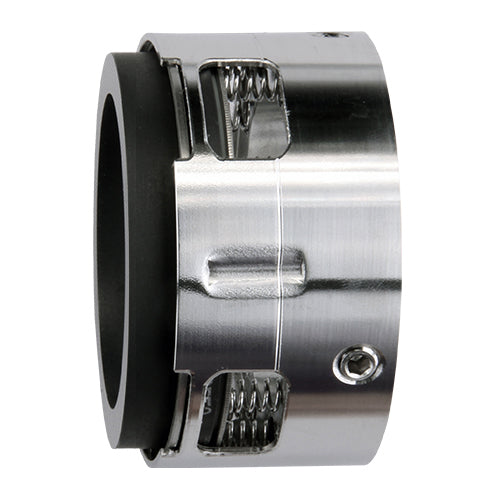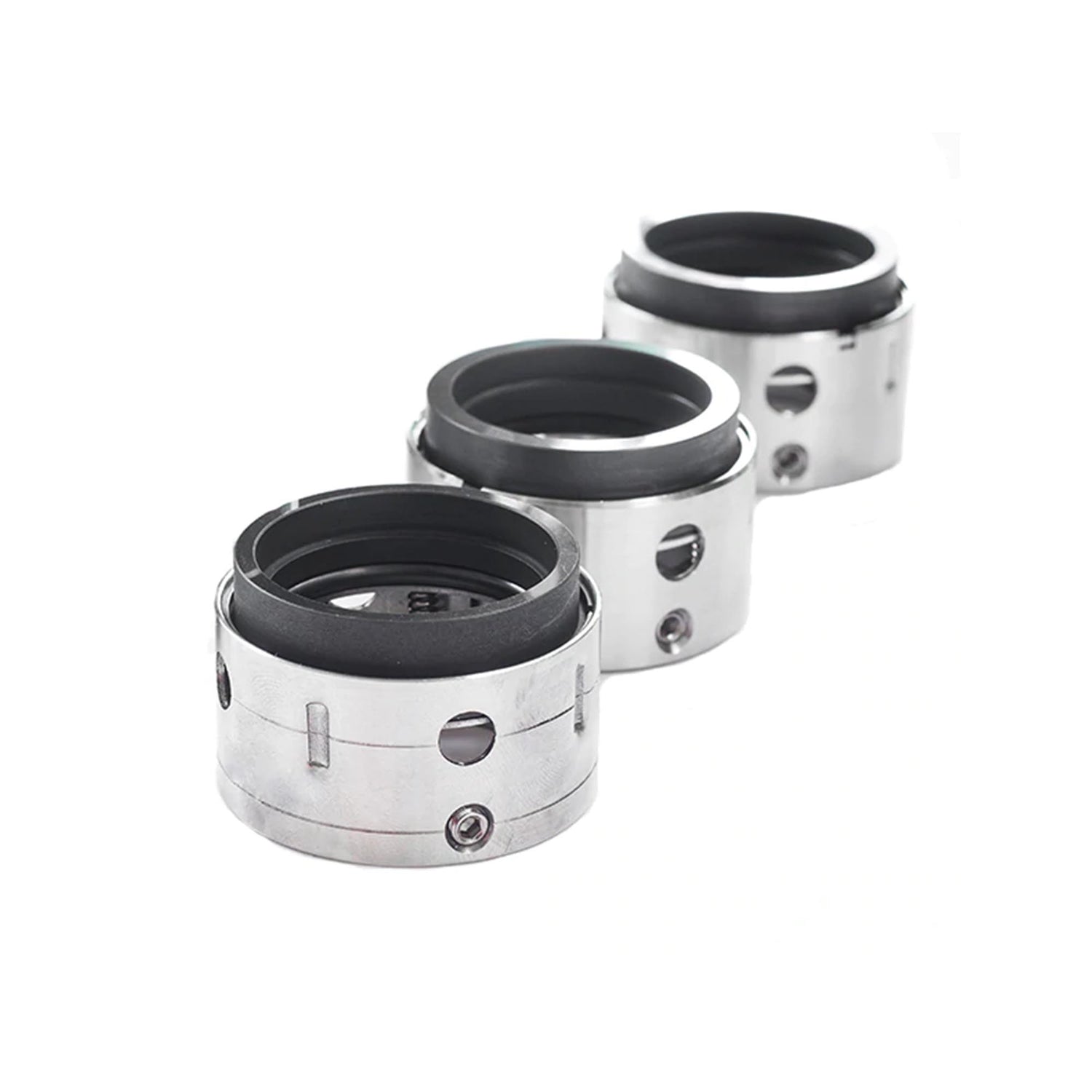
The correct seal face material is key to a happy seal
Mechanical seals are available in a variety of materials depending on the seals purpose. By selecting the correct material for your pump seal it will last a lot longer, prevent unnecessary maintenance and failures.
Which material is the right for your environment?
You must consider the “environment” the seal will be exposed to when selecting the design, and importantly, the material of your mechanical seal. The saying “pay me now, or pay me later” very much applies to seals as not selecting the right material will cost more in the long run.
-
What type of material does my environment need?
For all environments the material used for the seal face must be stable, be able to conduct heat, be chemically resistant and deliver good wear resistance. However, certain environments will need these properties to be stronger than in others.
Abrasive and harsh environments mean that the material selected must be able to withstand this, which can be more expensive. However the cost will be returned to you over time as poor material grade selection will only result in costly shut downs, repairs, refurbishments or replacements of the seals once again.
On the other hand if you are pumping very clean fluid that has a lubricating quality such as machine oil or Ethylene Glycol, save your money for better quality bearings.
-
What are the materials used for mechanical seals?
Various materials can be used for seals depending on the requirements and environment they will be used for. By looking at material properties such as hardness, stiffness, thermal expansion, wear and chemical resistance, you are able to find the ideal material for your seal.
When mechanical seals first arrived, seal faces were often made from metals such as hardened steels, copper and bronze. Over the years, more exotic materials have been utilised for their property advantages, including ceramics and various grades of mechanical carbons.
Common seal face materials
The most common types of mechanical seal faces are as follows:
-
Carbon (CAR) / Ceramic (CER)
This material generally comprises of 99.5% aluminium oxide which offers good abrasion resistance due to its hardness. As carbon is chemically inert it can withstand many different chemicals, however it is not suitable when thermally 'shocked'. Under extreme temperature changes it can shatter or crack.
-
Silicone Carbide (SiC)
This material is created by fusing silica and coke and is chemically similar to Ceramic, however it has improved lubrication qualities and is much harder. Silicone carbide's hardness make it an excellent hard-wearing solution for harsh environments and it can also be re-lapped and polished to refurbish the seal multiple times over its lifetime.
-
Tungsten Carbide (TC)
A highly versatile material like silicone carbide but it is more suited to high pressure applications due to having high elasticity in comparison. This allows to to 'flex' very slightly and prevent face distortion. As with Silicone Carbide it can be re-lapped and polished.
-
GFPTFE
This material has good chemical resistance and the glass is added to reduce the friction of the sealing faces. It is ideal for relatively clean applications and a cheaper alternative than other materials.
As with most parts of mechanical seals, there are sub-variants of these seal materials that allow you to more closely match the seal to the requirements and environment, improving the overall performance of the seal.

The basics of Mechanical Seals
Identifying, buying and replacing mechanical seals can be complicated if you don't know what you are doing. Find out how mechanical seals work, the components in them and why they should be used.

The main types of Mechanical Seals
Mechanical Seals come in many types, with endless variations, so understanding what type you need is a key step in replacing or buying a seal. Take a closer look at the 4 main types of seals and see how they work.
Our Mechanical Seals range
Check out our extenisve mechanical seal range, including replacement seals for most major manufacturers: Eagle Burgmann, John Crane, Roten/Uniten, AES, Alfa Laval, Grundfos, MTU, PAC-Seal, US Seal and more.
Looking for the perfect seal?
-
Identify the seal you need
Use toolIndentify the seal you need using our Mechanical Seal Idenitifcation tool by selecting the key design features.
-
Check Chemical Compatibility
Check materialsUse our compatibility checker to ensure you are using the most effective material for your seal.
-
Contact the team
Contact usWe can help you find the perfect mechanical seal for your requirements, just get in touch.

